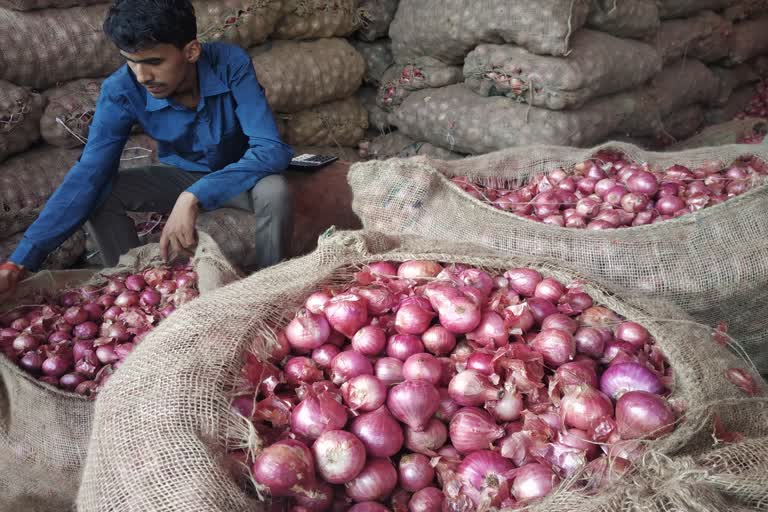New Delhi: Private traders have placed orders for importing onions and at least 1,000 tonnes are expected by month end, which will help ease retail prices that is still ruling high at over Rs 60/kg, a senior government official said on Tuesday.
The retail prices of onion had soared to Rs 100/kg a week back in the national capital, but the government's various intervention helped it to cool down a bit, but the rates are still ruling high at over Rs 60/kg in Delhi as well as other consuming areas of the country.
"Private traders have informed the government that they have imported a small quantity of onion. Traders are expected to order further 1,000 tonnes for delivery by month-end and another lot for next month," a senior Consumer Affairs Ministry official told PTI.
The shipments will come smoothly as the government has liberalised phytosanitary and fumigation norms for import of onion till December-end, the official added.
To improve domestic availability and contain price rise, the government is facilitating onion imports through private as well as public trading agencies. The government has decided to import 1 lakh tonnes of onion through state-run MMTC, which has already invited bids for import of 4,000 tonnes.
Onion prices came under pressure due to 30-40 per cent estimated fall in the Kharif (summer) output this year on account of floods and drought.
Onion production in kharif and late-kharif seasons of 2019-20 is estimated to fall 26 per cent to 52.06 lakh tonne, putting pressure on supply and prices, Food Minister Ram Vilas Paswan said.
During the current year, the production of kharif and late-kharif is estimated to be 52.06 lakh tonne, which is about 26 per cent lower than the previous year's production of 69.91 lakh tonne in the same seasons, the minister said.
Paswan said the government has banned onion exports and imposed stock limits to boost domestic supply and check prices.
Besides easing norms for import, the government has taken several measures including ban on exports, stock limits on traders and sale of the commodity stored as buffer, at a subsidised rate.
Read more:Upbeat stock market boosts mutual fund industry in October



